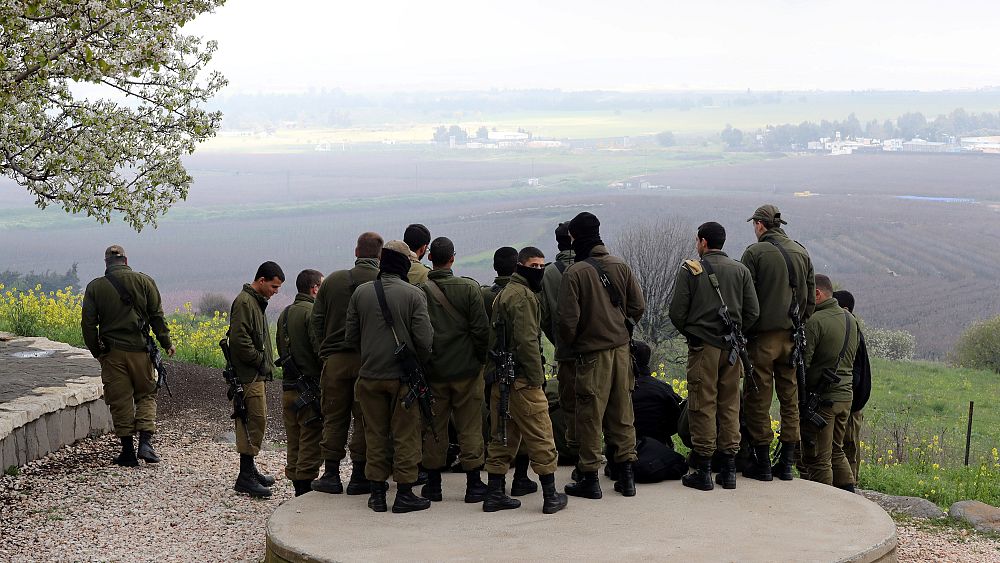
[ad_1]
The signing by US President Donald Trump of a document recognizing Israel's sovereignty over the occupied Golan Heights recalled border and political disputes over land supposed to be Arab but not controlled by the Arab authorities . What are some of these areas, or territories, in the Arab world? And who are they mainly? Who is currently running it?
Shebaa Farms: Israel too
The Shebaa Farms are on the border between Lebanon and the Golan Heights, an area captured by Israel during the Middle East War of 1967. Despite the withdrawal of Israel from southern Lebanon in 2000, Tel -Aviv refuses to put an end to the control of the Shebaa farms, invoking the presence of the region on the Syrian border.
Despite repeated calls by the Lebanese for the release of Shab'a farms, the United Nations has not yet issued any resolution forcing Israel to withdraw. The Shebaa Farms have been used as a political pretext in Lebanon's internal and regional affairs, where Hezbollah insists that its weapons should not be abandoned until they are released. Syria has declared that it will end its presence in Lebanon only after the liberation of the farms.
US recognition of Israel's sovereignty over the Golan Heights has raised concerns about the possibility of signing a similar US resolution in the future on Shebaa farms.
Gulf Islands: Iran
The islands of Grand Tunb, Lesser Tunb and Abu Musa in the Gulf region are three islands whose sovereignty is disputed by the United Arab Emirates and Iran despite the actual control of the latter.
The islands control the Strait of Hormuz and are of great strategic importance because of their control of shipping traffic, where about 40% of the world's oil production spends each day.
The quarrel around these islands dates back to 1971, when the British evacuated the United Arab Emirates. Iran saw an opportunity to extend its control over the islands despite the signing of a memorandum of understanding by Sharjah's ruler, Khalid al-Qasimi, which stipulated the sharing sovereignty over the island of Abu Musa without recognizing the full control of these islands. Calculate the other.
Iran has established its presence in the islands in several stages, the most important of which was the construction of an anti-ship missile base on the island of Abu Musa in 1992, the construction of an Iranian airport in 1999 and the creation of an Iranian province under the name of "Persian Gulf".
Ceuta and Melilla: Spain
Ceuta is located on the Mediterranean coast of Morocco, near the Strait of Gibraltar, while Melilla overlooks the east coast of the country, near the Algerian border.
Both cities are under Spanish control since the 15th century AD, unchanged since the independence of Morocco from France and Spain in 1956. Morocco seeks sovereignty over both cities, but its Intermittent efforts are tempered by the fact that the United Nations does not classify the situation in the occupied territories.
Morocco intensifies and mitigates its demands on the two cities in the interest of its political and economic relations with Spain, as well as Rabat's concern for another border conflict with the Polisario Front, which demands the independence of Western Sahara control of Morocco.
Spain separates the two cities and Moroccan territories from an isolated border fence.
Iskenderun Brigade: Turkey
The block called Iskenderun, located north-east of the Mediterranean Sea, north-west of Syria, overlooks the Gulf of Iskenderun and the Swedish gulf, and includes six cities: the capital of Antioch, Iskenderun , Urdu, Reihania, Sweden and Erzuz, which historically belongs to Syria.
The conflict around the brigade goes back to the Ottoman Empire and until France authorized Turkey to control it in 1939, during the French mandate in Syria and Lebanon, after the League of Nations decided to separate the region of Syria in 1937.
The French decision preceded an internal referendum in which the majority voted in favor of joining the Turkish government.
Turkey has launched the brigade named Hatay Province and now houses 1.5 million people.
The importance of strategic brigade should be used as a point of export of Turkish oil in addition to archeological sites and tourism booming.
Read also:
Source link